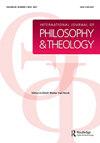Agamben on secularization as a signature
IF 0.3
0 PHILOSOPHY
International Journal of Philosophy and Theology
Pub Date : 2022-05-01
DOI:10.1080/21692327.2022.2068049
引用次数: 1
Abstract
ABSTRACT This article reconstructs Agamben’s contribution to the secularization debate. To this aim it clarifies Agamben’s determination of the category of secularization as a signature. It first presents the relevant passages on secularization from across Agamben’s corpus, placing them in the context of the classic secularization debate between Blumenberg, Schmitt and Löwith. Second, it elaborates on Agamben’s theory of the signature. Third, it proposes how we can understand secularization as a signature. Fourth, it examines the different strategic functions of secularization and profanation in Agamben’s critical philosophy. The article argues that Agamben’s account of secularization comprises two distinct levels. Agamben develops a general theory of secularization as a signature, which implies that it is an operator that orients hermeneutic understanding by referring secular elements to the discursive field of religion and theology (or vice versa), and that always performs a strategic function. To what strategic function Agamben puts secularization to use himself, corresponds to the second, particular level of Agamben’s understanding of secularization. Secularization is in Agamben’s critical project subservient to the operation of profanation. The article is in light of the secularization debate most concerned with the general level of Agamben’s account of secularization.阿甘本论世俗化的标志
本文重构了阿甘本对世俗化争论的贡献。为此,它阐明了阿甘本对世俗化范畴的认定。它首先介绍了阿甘本文集中关于世俗化的相关段落,并将其置于布鲁门伯格、施密特和勒维斯之间的经典世俗化辩论的背景下。其次,阐述了阿甘本的签名理论。第三,它提出了我们如何将世俗化理解为一种标志。第四,考察了世俗化与亵渎在阿甘批判哲学中的不同战略功能。文章认为,阿甘本对世俗化的描述包括两个不同的层面。阿甘本发展了一个世俗化的一般理论作为一个标志,这意味着它是一个通过将世俗元素引入宗教和神学的话语领域来引导解释学理解的操作者(反之亦然),并且始终发挥着战略作用。阿甘本将世俗化发挥到什么样的战略作用,对应着阿甘本对世俗化认识的第二个特定层次。世俗化是阿甘本的关键项目,屈从于亵渎的运作。这篇文章是针对世俗化的争论,最关心的是阿甘本对世俗化的总体描述。
本文章由计算机程序翻译,如有差异,请以英文原文为准。
求助全文
约1分钟内获得全文
求助全文
来源期刊

International Journal of Philosophy and Theology
PHILOSOPHY-
CiteScore
0.30
自引率
0.00%
发文量
12
期刊介绍:
International Journal of Philosophy and Theology publishes scholarly articles and reviews that concern the intersection between philosophy and theology. It aims to stimulate the creative discussion between various traditions, for example the analytical and the continental traditions. Articles should exhibit high-level scholarship but should be readable for those coming from other philosophical traditions. Fields of interest are: philosophy, especially philosophy of religion, metaphysics, and philosophical ethics, and systematic theology, for example fundamental theology, dogmatic and moral theology. Contributions focusing on the history of these disciplines are also welcome, especially when they are relevant to contemporary discussions.
 求助内容:
求助内容: 应助结果提醒方式:
应助结果提醒方式:


